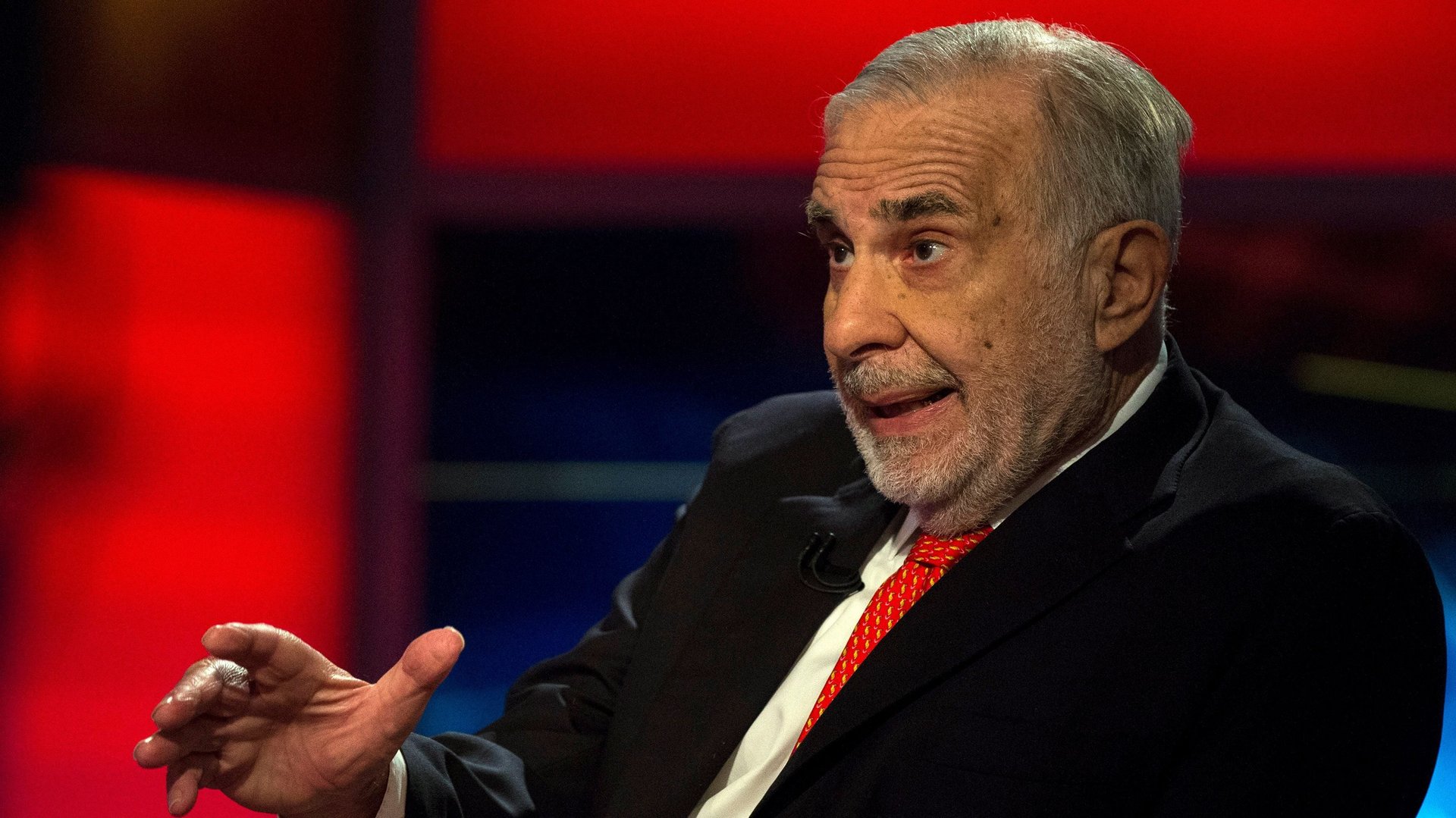Carl Icahn is adding workers’ rights to his investor activism
Billionaire investor Carl Icahn intends to nominate two candidates to the board of Kroger and called out the largest US supermarket chain for the “unconscionable” wage gap between its CEO and the average employee.


Billionaire investor Carl Icahn intends to nominate two candidates to the board of Kroger and called out the largest US supermarket chain for the “unconscionable” wage gap between its CEO and the average employee.
“Kroger’s top management and directors are failing to provide decent pay to workers in a company that can afford to give its CEO $22 million dollars per year,” Icahn, estimated by Bloomberg to have a net worth of $23 billion, wrote in a letter to Kroger CEO Rodney McMullen.
Kroger is the second major American company Icahn has taken on in as many months. In February, he targeted McDonald’s for not living up to its commitment to working exclusively with pork suppliers who have phased out gestation crates, tiny stalls in which pigs are housed while pregnant. Icahn also brought his animal welfare campaign to Kroger, condemning it for buying meat from producers that use gestation crates.
Pay gaps and animal welfare
The gap between McMullen’s salary and that of the median employee is indeed stark. In 2020, McMullen earned $22.4 million, versus the $24,617 Kroger employee average.
“Even in a hard-nosed capitalistic system like ours, it is obscene that a CEO makes 900 times what workers earn,” Icahn wrote in his letter to McMullen. “It is truly difficult to point to anything comparable, even when considering the grave injustices in the early days of the Industrial Revolution.”
Except there are at least 28 companies in the Standard & Poor’s 500 Index with even greater gaps in pay for the CEO versus rank-and-file employees, according to data compiled by the AFL-CIO. They include household names like Gap, Chipotle, Hilton, Nike, Coca-Cola, General Electric, and Starbucks. CEOs at those companies were paid 1,100 to 3,100 times the median employee in 2020, while the CEO-to-worker pay ratio for S&P 500 companies was 299-to-1.
Icahn also called out Kroger, whose profits have soared during the pandemic, for dropping a $2 hourly hazard increase, or “Hero Bonus,” promised to frontline workers for working throughout the covid-19 crisis. The bonus program was dropped two months after it began in April 2020.
“What has happened at Kroger with the issues of animal welfare and employee wages is an affront to the basic fibers of our society—that of decency and dignity,” Icahn wrote in his letter.
Kroger said that it is committed to protecting the welfare of animals in its supply chain, and has policies in place for suppliers to transition away from gestation crates by 2025. A company’s spokesperson said CEO compensation is both market and shareholder aligned, and that “the majority [of McMullen’s pay] is at-risk and performance-based.” In the last four years, Kroger raised average wages of grocery employees by 25% to $17 an hour.
Who is Carl Icahn?
Icahn has been a disruptive force in corporate America for decades. The veteran investor built a reputation for demanding aggressive changes after amassing huge stakes in companies, and then pushing management to fix problematic business practices and deliver more value to shareholders.
He gained a reputation as a corporate raider after taking over Trans World Airlines (TWA) in 1985. Icahn bought 20% of the airline’s stock and became the company’s chairman. Once in control, he sold off its assets to repay the debt used to purchase the company. In 1988, he took TWA private and made $469 million, while saddling the company with $540 million in debt. TWA filed for bankruptcy in 1992.
More recently, he has expanded his playbook of buybacks and asset sales to include social causes. As he wrote to McMullen: “At this point in my career, I view it as my mission to make changes where I can by doing what I do best, in areas that I consider to be glaring injustices.”
Icahn’s record on CEO pay
This is not the first time Icahn, who grew up working class in Queens, New York, before attending Princeton University, has expressed frustration with the disparities in pay for executives and lower-earning employees.
“It is completely, totally reprehensible that a CEO makes 1,000 times what a worker makes and then he’s playing golf all day,” he told Reuters in 2013. “And on top of that, the stock of his company has fallen and he’s still making a 1,000 times what the guy makes and when you finally get him out he gets a huge severance package.”